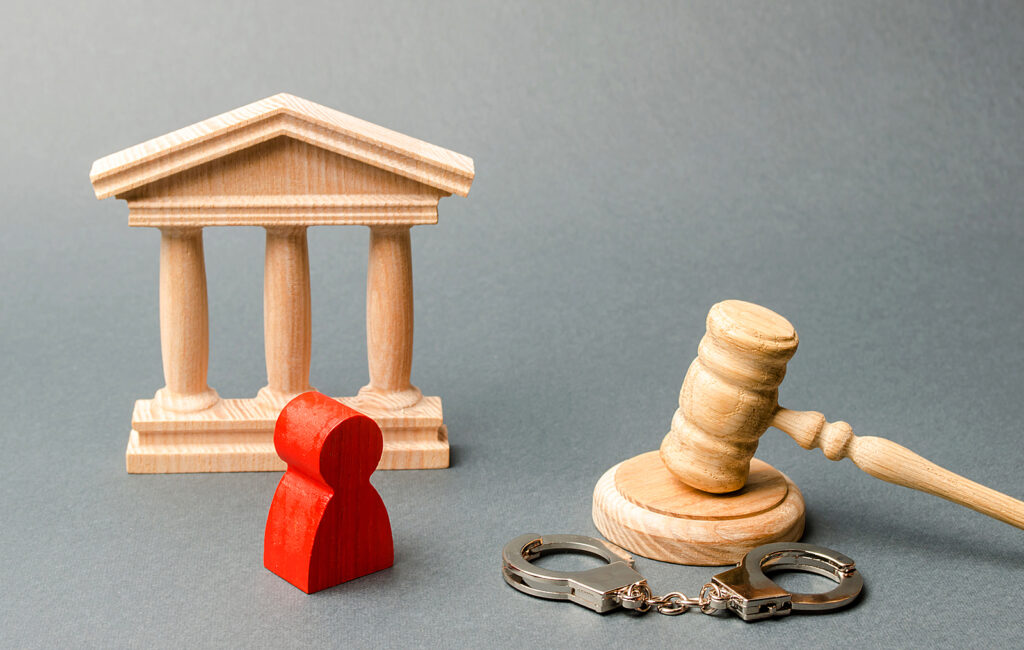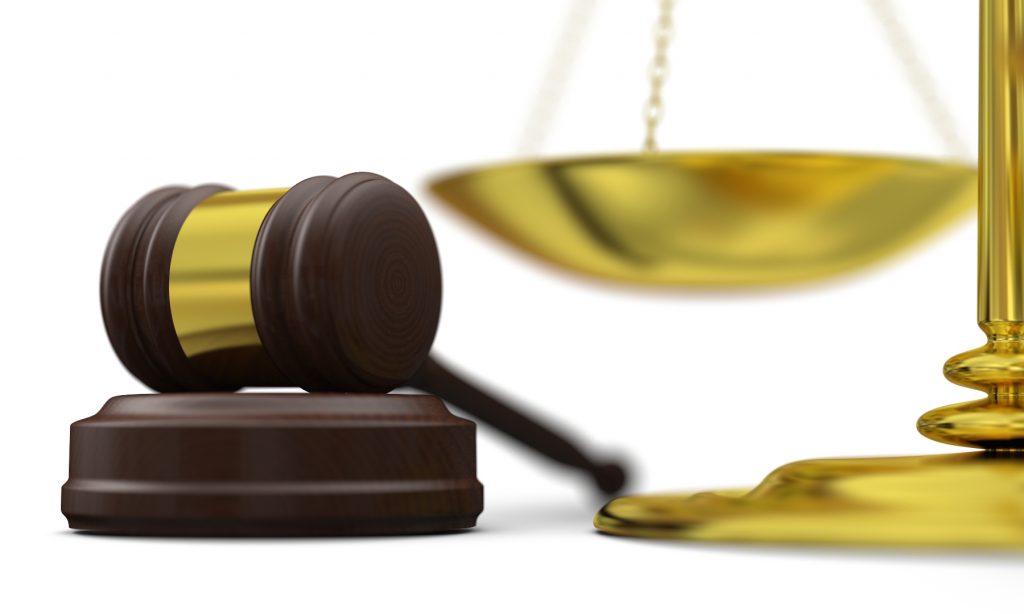Criminal defendants in Indiana commonly want to know when they will have the opportunity to plead guilty or not guilty in the criminal case. Let’s start by briefly examining the different stages of a criminal case, including the point at which you are ordered to plea, convicted or acquitted, and sentenced if convicted. Continue below to get started.

The Common Order of Events in a Criminal Case
The common order of events in a criminal case are as follows: arrest, bail, arraignment, preliminary hearing, pretrial motion, trial, sentencing, and if applicable, appeals. Usually, the criminal defendant accepts a plea bargain from the prosecuting attorney, in which case all criminal proceedings basically come to an end. Accepting a plea bargain essentially means pleading guilty before a trial takes place.
Criminal Case Stages in Standard Order:
Arrest
State level criminal cases begin with an arrest, either on the spot or following an arrest warrant surrender. If suspected of federal charges, the criminal process begins with an indictment. Once the defendant is arrested, they are placed in custody at the local county jail or Sheriff’s office.
Bail
Once a defendant is placed in custody, they will be booked and processed into the jail’s database system by jail staff. If the defendant is arrested under the influence of drugs or alcohol, jail staff must wait at least eight hours to ensure the defendant is sober before getting started on booking them. Once the booking process is complete, the inmate is given the opportunity to post bail. Bail is usually set by a judge or other court officer between 24 and 48 hours of the arrest, but it can also be denied by the judge if certain factors apply.
Pursuant of Indiana Rules of Trial Procedure, local circuit court rules specifically state, “A person arrested and incarcerated without a warrant should be released from custody within forty-eight (48) hours of arrest unless a judicial determination of probable cause for arrest has been obtained or extraordinary circumstances exists which prohibit the holding of a hearing on probable cause within forty-eight (48) hours.”
Arraignment
If you were wondering when a defendant is given the opportunity to make a plea in their criminal case, the answer would be during their arraignment. At the arraignment, the judge will read the defendants their criminal charges, and then give them the opportunity to plead guilty or not guilty. A defendant’s arraignment is their first official court appearance. Typically, by this point they would have already hired a private criminal defense lawyer in Indianapolis. If not, the judge will give the defendant the opportunity to accept a public defender at this point in the criminal process.
Preliminary Hearing
The preliminary hearing, also known as the initial hearing or preliminary examination, is the next stage of the criminal process. In some cases, states will bring criminal charges by grand jury indictment. Federal cases are required to bring charges by grand jury indictment. During the preliminary hearing procedures, both the prosecution and defense legal teams will go back and forth questioning witnesses and the defendant. This hearing is used to establish probable cause. If the case gets dismissed because there is not enough evidence to support the criminal charges, it will happen at the preliminary hearing.
Pretrial Motion
Also known as a pretrial conference, this hearing takes place before the defendant’s trial hearing. It is simply a meeting between both the prosecuting attorneys and the defense attorneys, to discuss pre-trial motions and other trial-related issues. At this meeting, it will be decided if the case will go to trial, or if a plea bargain can be agreed upon instead. If a plea agreement is made, then a trial will not be needed.
Trial
Following the plea of guilty or not guilty, the defendant will be found one way or another at their trial. It is the prosecution’s responsibility, or burden, to prove beyond a reasonable doubt that the defendant is guilty of their alleged criminal charges. If prosecution fails to do so, the defendant will be found not guilty. Otherwise, the trial is when defendants are handed down a guilty verdict.
Sentencing
At the sentencing hearing, the defendant will learn what their penalties are for their convicted criminal charges. Common court-ordered penalties for guilty convictions include jail time, fines, probation, house arrest, ankle monitoring programs, drug or alcohol rehabilitation, educational courses, and more.
Appeals
If a defendant is found guilty at their trial, their criminal defense lawyer can file an appeal in appellate court to either reduce or turn around their client’s conviction, or to be given a retrial. Requesting an appeal means a defendant wants their case reviewed by a higher court to ensure authenticity and due diligence.
Are you looking for a skilled criminal defense lawyer to protect you from the maximum penalties for your criminal charges in Indiana? Contact the Law Office of David E. Lewis at 317-636-7514 for superior and aggressive Indianapolis criminal defense you can count on. We can meet over the phone, via online video conference, or in person at our office.
Related Posts:
The 6 Stages of an Indiana Juvenile Case
What to Expect From the Indiana Criminal Bail Bond Process
FAQS About The Indiana Criminal Justice Process



